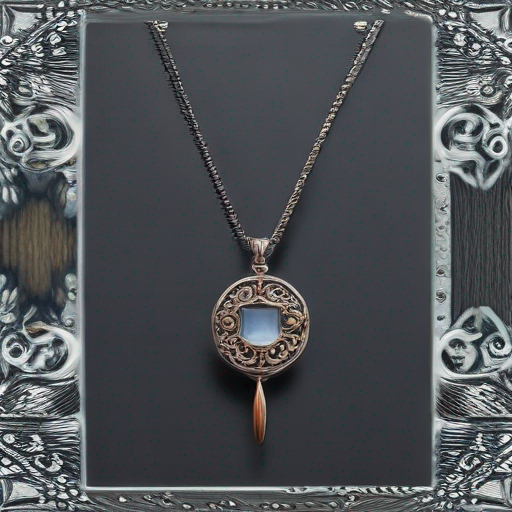
How to De Rust A Necklace: Tips and Tricks to Restore Your Favorite Jewelry
Are you tired of looking at your once-beautiful necklace, now covered in unsightly rust? Don't worry; we've got you covered! In this article, we'll explore the best methods for removing rust from a necklace, including some clever tricks to help you achieve professional-looking results.
Understanding Rust Formation
Before we dive into the de-rusting process, it's essential to understand how rust forms in the first place. Rust is a type of corrosion that occurs when iron or steel comes into contact with oxygen and moisture. This can happen when jewelry is exposed to humid environments, salty air, or even just regular wear and tear.
Method 1: Vinegar and Baking Soda
One of the most effective ways to remove rust from a necklace is by using a mixture of vinegar and baking soda. Here's how it works:
- Mix equal parts of white vinegar and water in a bowl.
- Add 2-3 tablespoons of baking soda to the solution.
- Soak the rusty necklace in the mixture for at least an hour or overnight.
- Use a soft-bristled toothbrush or a non-abrasive cloth to gently scrub away the rust.
- Rinse the necklace with warm water and dry it with a soft cloth.
Method 2: Lemon Juice and Salt
If you don't have baking soda on hand, you can also use lemon juice and salt to remove rust. Here's how:
- Cut a lemon in half and squeeze out the juice into a bowl.
- Add 1-2 tablespoons of salt to the lemon juice.
- Soak the rusty necklace in the mixture for at least an hour or overnight.
- Use a soft-bristled toothbrush or a non-abrasive cloth to gently scrub away the rust.
- Rinse the necklace with warm water and dry it with a soft cloth.
Method 3: Hydrogen Peroxide
For tougher rust stains, you can try using hydrogen peroxide. Here's how:
- Soak the rusty necklace in a bowl of equal parts hydrogen peroxide and water for at least an hour.
- Use a soft-bristled toothbrush or a non-abrasive cloth to gently scrub away the rust.
- Rinse the necklace with warm water and dry it with a soft cloth.
Tips and Tricks
Here are some additional tips and tricks to help you successfully remove rust from your necklace:
- Always test a small, inconspicuous area of the jewelry before applying any cleaning solutions to ensure they won't damage the metal or other components.
- Avoid using harsh chemicals or abrasive materials that can scratch or damage the jewelry.
- For more severe rust stains, you may need to repeat the cleaning process several times before achieving desired results.
- To prevent future rust formation, consider applying a clear coat of varnish or sealant to the jewelry after cleaning.
Comparison Chart
Here's a comparison chart of the three methods discussed above:
| Method | Time Required | Ease of Use | Effectiveness |
|---|---|---|---|
| Vinegar and Baking Soda | 1-2 hours | Easy | High |
| Lemon Juice and Salt | 1-2 hours | Moderate | Medium-High |
| Hydrogen Peroxide | 1 hour | Challenging | High |
Conclusion
Removing rust from a necklace may seem like a daunting task, but with the right methods and techniques, you can achieve professional-looking results. By following these tips and tricks, you'll be able to restore your favorite jewelry piece to its former glory. Remember to always test cleaning solutions on a small area first and avoid using harsh chemicals or abrasive materials that can damage the jewelry.
How to De Rust A Necklace
For more information on how to de rust a necklace, check out this helpful resource: https://ratherpretty.com/how-to-de-rust-a-necklace
Key Takeaways:
- Vinegar and baking soda is an effective method for removing rust from a necklace.
- Lemon juice and salt can also be used to remove rust, but may require more elbow grease.
- Hydrogen peroxide is best suited for tougher rust stains.
- Always test cleaning solutions on a small area first to ensure they won't damage the jewelry.
- Repeat the cleaning process several times if necessary to achieve desired results.
